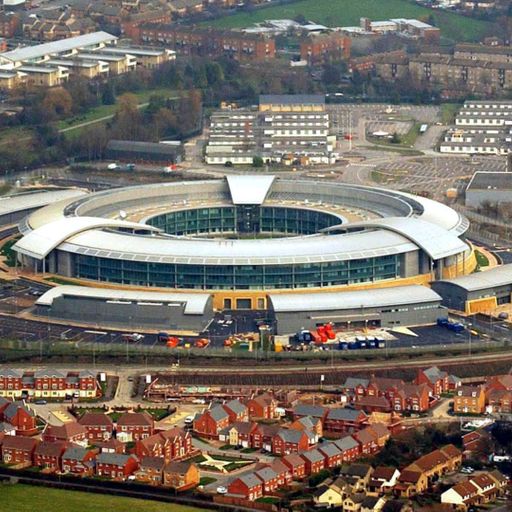The Falklands War would have been lost without the contribution of GCHQ, according to an authorised “warts and all” history of the spy agency.
It is one of many revelations in newly released Behind The Enigma, by Professor John Ferris.
The author says its contribution to the 1982 war with Argentina has been underestimated.
Prof Ferris says GCHQ helped guide British strategy and diplomacy ahead of and during the war, and demonstrated how the Argentine navy was attempting to ambush British forces, which led to the sinking of the General Belgrano.
Without GCHQ, he concludes, Britain probably would have lost the 1982 conflict.
The history professor was given unprecedented access to documents in GCHQ’s archive containing around 16 million artefacts, many of them previously classified, to write the book.
The Cheltenham-based spy agency – which works alongside MI5 and MI6 – commissioned its first-ever authorised history to mark its centenary year in 2019.
The need for secrecy in everything GCHQ does is taken to extremes, says the author, telling of an employee who found out his son had been killed in action in 1945, but could not tell his wife.
Employees, Prof Ferris writes, “internalise this idea that they should not talk about what it is they do. And not even tell members of their family and they simply get used to it.
“You have mathematicians who make a discovery which is five or 10 years ahead of what any civilian mathematician does and yet they can’t publish it.
“Now for most mathematicians that would be very frightening, horrifying, but they are used to the idea.
“They see themselves really as being given the opportunity sometimes to use leading-edge kit to do fascinating work. They are willing to live without getting the personal credit.”
Prof Ferris says that while the UK’s biggest intelligence agency has helped shorten wars and save lives, its work cannot compensate for failures of policy or military strength.
In 1937, for example, two years before the Second World War began, it advised prime minister Neville Chamberlain that Hitler and Mussolini wished to cooperate.
But, instead of acting on the intelligence, Chamberlain responded by asking the Italian authorities whether the accounts were true – and took their word when they lied.
Set up in 1919, GCHQ moved to Bletchley Park in Buckinghamshire during the Second World War.
However, the famous code-breaking efforts of Alan Turing and others in turning the course of the war are often over-rated by the public, Prof Ferris told the BBC.
He said their “amazing” work did indeed help bring forward the end of the conflict to some extent, but added: “Intelligence never wins a war on its own.”

